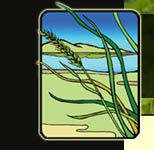
Central Coast Wilds assists clients with ecological monitoring to ensure compliance with federal, state, county, and city permit requirements. Staff and associates provide a broad base of ecological knowledge, including botanical, wildlife, and entomological monitoring.

Central Coast Wilds conducts surveys and habitat assessments to assist clients in meeting federal, state and local environmental guidelines. We use standard methodologies to gather vegetation information including grid surveys, point-quarter and random transect analysis of populations and multivariate community analysis. We assess project impacts and propose mitigation measures to mitigate for project impacts on native species and habitat.

Central Coast Wilds conducts focused botanical surveys for state and federally listed species, candidate species, and species of special concern. We utilize currently accepted methodologies endorsed by the California Department of Fish and Game, the California Native Plant Society, and the United States Fish and Wildlife Service to identify the presence of sensitive species. We complete impact assessments and design species-specific mitigation plans to mitigate for project impacts.

CCW uses established protocols for long term plot-based monitoring of plant species diversity. They can be used in conjunction with protocols for monitoring other terrestrial organisms living above or below ground, and for monitoring selected climatic and other abiotic variables.
- A. Canopy-Tree Stratum Biodiversity Monitoring
- B. Shrub and Small-Tree Stratum Biodiversity Monitoring
- C. Ground Vegetation Stratum Biodiversity Monitoring
- D. Vegetation Gradient Biodiversity Monitoring
- E. Invasive Vegetation Monitoring



